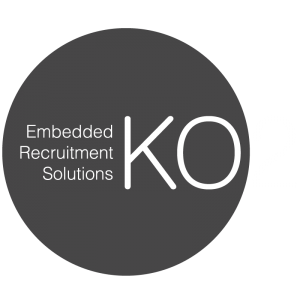Contracting is a common way to work in the engineering industry, offering flexibility, freedom with your work schedule and higher rates of pay for the services involved. From an employer perspective, hiring contractors has always been a useful way to manage periods of increased work or get specialist insight and advice during a project.
There are a range of benefits to being a contract engineer, but permanent employment does also have its advantages. If you’ve been working as a contractor, you might end up considering moving to a permanent role at some point in your career. This article offers insight into what this change means and shares useful guidance to help you decide whether contract or permanent employment is best for you.

The Benefits of Contract Engineering Work
Before moving from fixed-term to permanent contracts, it’s first important to consider the benefits of contract engineering work. Weighing up the advantages of a contractor role will ensure that you’re making the right choice for your preferred style of working and current circumstances, which we’ll explore later in this article.
Here are some of the main benefits of being a contract engineer.
Pay
One of the key differences in the contractor vs permanent comparison is the pay. On average contractors earn more than employees for the work they do, which is a significant benefit to working on a contract basis for a company.
One of the reasons for this pay increase is that contractors can charge more for their services when they come in as temporary specialists and have the freedom to negotiate and raise their fees when they want. Whilst their length of employment is shorter than a permanent employee, this increase in pay means that their overall earnings tend to be higher.
Contractors also tend to take home more money because they pay less in taxes. They can also claim expenses for things like travel, equipment and even food, which again means they take home more money at the end of the day.
Flexibility
Another benefit that many people see as one of the main advantages of being a contract engineer is that you tend to have a lot more flexibility with the work you do. Unless your employer insists on a lot of time in the office, contractors are often free to complete the work they have been paid to do whenever they want, as long as they deliver it by the agreed deadline.
Different contracts will have different specifications about when and how you work, but many contractors find that they have a lot more flexibility than permanent employees with their working habits. This is a major benefit if you have other commitments that you’re trying to fit work around and if you decide to take on multiple jobs at once, meaning you can dedicate time to each of them as you wish.
Some contract engineers also enjoy the travel opportunities that this type of work offers them, meaning they get to travel the country and sometimes the world to live and work in another destination for several months. These opportunities aren’t always available to engineers in a permanent role, which might be a disadvantage for some.
Control
Leading on from the flexibility many people appreciate in contract engineering jobs, another benefit of this type of position is that you have total control over the work you do. From the projects you get involved with to the types of companies you work with, when you’re a contract engineer you get to choose the work you do and can control this much more than if you were a permanent employee.
Many contractors have specialised in a particular field of engineering, and being in charge of your own workload means that you can pick projects that mean you only have to do work that you enjoy and are an expert at. This control, and the ability to say no to projects that don’t interest you, is a major advantage for engineers who prefer consistency in their work.
Industry Network
The final advantage of contract engineering jobs is that they can allow you to build a larger network of other engineers in your industry, which can be really beneficial for your career. You can obviously network when you’re in a permanent position as well, but as a contractor you’ll naturally interact with more people and gain a reputation faster for the work you do across different companies, building a greater number of connections.
Finding contract work as an engineer can be done traditionally by applying for roles that are advertised, but many contractors also find that word of mouth, recommendations and referrals are a key part of sourcing opportunities. When you’re a contractor you’re free to meet others in your industry, get involved in various projects and establish yourself as a talented contractor.

The Benefits of Permanent Engineering Roles
Whilst there are significant benefits to being a contract engineer, many people choose to move from a temporary to permanent employment contract because of the advantages that the alternative offers. Here are some of the most significant.
Job Security
A significant incentive for moving from fixed-term to permanent contracts is that it provides you with much more job security. Whilst there might be periods as a contract worker when you have plenty of offers of work coming in, you also run the risk of going through phases where you don’t have any work. This lack of job security can be stressful and unsustainable for some.
In a permanent role, whilst there is always a possibility that you could lose your job, you can feel fairly confident that you will receive a regular paycheck and have your job from one week to the next. Even if you do decide to move jobs or are made redundant, you’ll usually have a notice period and a financial buffer that provides stability which many people appreciate. You’ll also be legally protected from sudden redundancy, which you may not have as a contractor.
Progression
Another benefit of being an engineer with a permanent job is that career progression is clearer and more consistent. Working as a contractor is a significant step in many people’s career, but once you reach the stage of being a contract specialist it can start to feel like there aren’t as many more senior roles available, especially if you’re not working with the same company.
As a permanent employee in an engineering company, your career will likely progress by gaining more seniority or more specialist skills as time goes on. This progression tends to be rewarded with job title changes and salary increases, and many companies may have a structured process for progression that makes it easy to understand how you can advance through an organisation.
Even if you move between companies when changing roles, career progression tends to feel more structured and predictable in permanent positions. When you’re starting out as an engineer this can be a real advantage, or a structured hierarchy and clear ways of progressing can also be easier to navigate if you’re more experienced and looking for roles that match your skills.
Benefits
Whilst it’s true that contract engineers earn more money on average in the contract vs permanent comparison, permanent employees are offered other benefits as part of their employment which can offer the same, or more value. Things like health insurance, job protection, subsidised childcare and paid sick leave usually come as part of a job offer, but as a contract worker you are afforded none of these benefits.
Different engineering companies will offer different levels of benefits, but many people view these additional features of the role as very valuable.
Long-Term Planning
Depending on your personal circumstances, a feature of a permanent engineering job that you might find valuable is the ability to long-term plan with more confidence. As we’ve already mentioned, there’s never 100% job security even in a permanent role, but it is easier to think further ahead and properly plan for the future when you’re not also having to secure work every couple of months.
Whether you have a family, are saving up for a significant purchase, or just want to be able to make future plans that won’t be disrupted by work, permanent employment offers much more certainty around which you can plan the rest of your time. Even in the case of redundancy, you can be certain of an income during your notice period or a redundancy package and can prepare accordingly, limiting potential financial challenges.
Training Opportunities
A final advantage of a permanent engineering job is that training opportunities are much more likely to be included as part of the role, and in many cases will be paid for by your employer. Whether it’s part of allocated personal development time or an optional training program that you can get involved in, these opportunities to enhance and expand your skills are incredibly valuable and can be really beneficial to your overall career.
As a contractor, training and development will be done in your free time and will have to be funded by you, meaning that it might not be treated as much of a priority. When you’re a permanent employee it’s usually quite easy to access development resources and support as part of your role in the company, and if you’re earlier in your career this can be especially useful in the long run.

Why Move From a Temporary Contract to Permanent?
Moving from a fixed-term to permanent contract is a decision that you may make at some point if you’ve been working as a contractor. In fact, whilst there was an increase in candidates choosing to move to contract engineering and developer jobs around 2020, there’s actually been a decrease in the number of contract roles available across the technology industry, along with more people choosing to move back to permanent roles.
So why might someone move from a temporary to permanent employment contract?
We’ve already discussed the benefits of a permanent role in the engineering industry, and these advantages may play a part in choosing between contract or permanent jobs. When the current economic landscape is looking relatively uncertain, a big reason for many people to move from a temporary contract to permanent employment is that it can guarantee consistent work and a consistent income that contracting can’t supply most people with at the moment.
Another reason to move from a contract to permanent position is that, after spending your time doing the same kind of work for different clients, permanent employment can offer a refreshing amount of variety. If you’re looking for a change in the work you do, or would just like to get involved with a broader range of tasks, a permanent engineering job can be a very positive change.
Finally, a key reason to move to permanent employment is that contracting can be lonely. When you’re part of an organisation you’re often part of a team, have the opportunity to build long-term relationships with your colleagues, and often benefit from a more social aspect of work which can improve your experience. Being part of a company also often brings a sense of belonging, which can be a real advantage over the independence of contract work.

Contractor vs Permanent – Which is Right for You?
To conclude this guide on moving from contract to permanent engineering roles, here’s a quick rundown on how to decide whether contract or permanent employment is right for you at the moment.
Do you need variety?
Consider whether you’d be happy doing the same kinds of tasks over and over again for different projects, or whether you’d prefer to have more variety in your workload.
Do you like flexibility?
Is having total control over your working days and hours important to you? Or are you happy to be working something like a 9-5 every day, with some limits to when you can take time off?
What matters most in your career right now?
Are you trying to develop and gain as much experience as possible at this point in your career? Or are you looking to specialise and establish yourself in the industry in a certain sector?
Can you ride economic uncertainty?
Are you in a financial position where you can manage some economic uncertainty for a couple of months? Or do you need a job that will provide a reliable income?

Summary
Moving from fixed-term to permanent contracts can be a very positive move in your career. Both situations do have their advantages however, so it’s important to consider what both types of work can offer you and which is best for your position, which we hope this article has helped with.
If you’re a contract engineer considering moving to a permanent engineering job, KO2 is a specialist recruitment agency with plenty of opportunities in the electronic embedded systems sector. Take a look at our available engineering jobs or get in touch to speak to the team about what you’re looking for.






